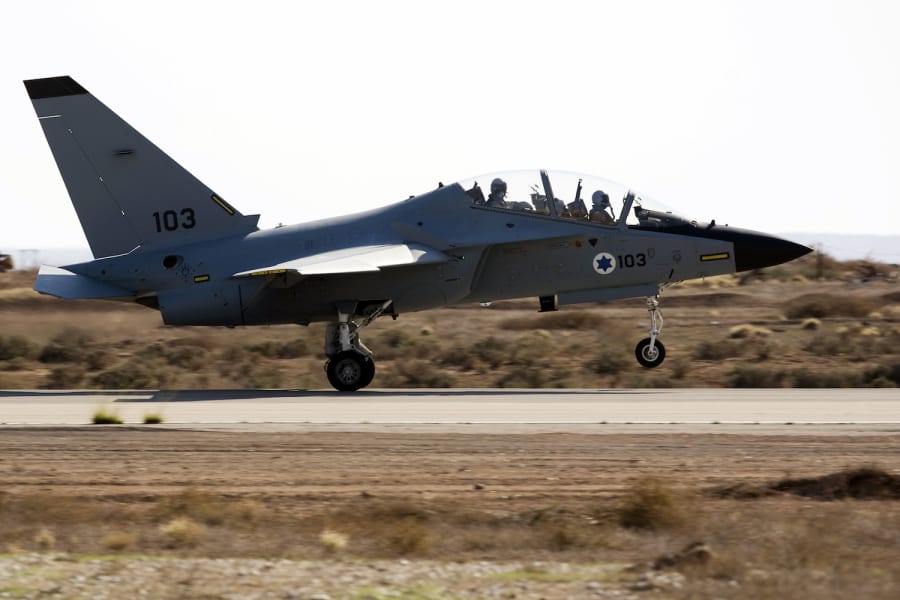Greece and Israel sign record $1.68 billion defense deal
Deal could serve to deepen Turkey's regional isolation or further anger the Muslim state

Israel’s Ministry of Defense announced last week that the Greek government has approved an Israeli bid for a 20-year, record $1.68 billion defense deal for the establishment of a flight school for the Greek Air Force.
Once the Greek and Israeli defense ministries sign it, it will reportedly be the largest military procurement deal ever between the two countries.
But what impact does the deal have on regional security dynamics and relations with Turkey?
In accordance with the agreement, the Israeli defense manufacturer Elbit Systems will set up and operate a training school for the Greek Air Force. Under the deal, Elbit will also upgrade and maintain Greece’s T6 training planes and Athens will buy 10 Aermacchi M-346 aircraft, the Israeli variant known as Lavi. The new Greek flight school will be modeled after the Israeli Air Force’s highly respected flight academy.
Israel’s Defense Minister Benny Gantz welcomed the bilateral defense agreement.
“This agreement reflects the excellent and developing relations we have with Greece. It is a long-term partnership that will serve the interests of both Israel and Greece, create hundreds of jobs in both countries, and promote stability in the Mediterranean,” Gantz said in an official statement.
IDF Brig. Gen. Yair Kulas, the head of the Israeli Defense Ministry’s International Defense Cooperation Directorate, addressed the emerging strategic partnership between Greece and Israel.
“The Greek government’s approval of this agreement is a historic step in further deepening the excellent defense relations between our two countries," Kulas said." This is not just a defense export agreement, but rather a partnership for at least 20 years. I would like to thank the Greek Ministry of National Defense for its trust, and for assigning this important task to the Israel Ministry of Defense and our excellent defense industry.”
Located in the politically volatile eastern Mediterranean, Greece and Israel share strategic interests and face similar threats from Turkey. In January 2020, Greece, Israel and Cyprus signed the EastMed gas pipeline deal, which will transport gas from the eastern Mediterranean’s expanding fields to Europe.
In recent years, Israel and the NATO-state Greece have both faced threats from an increasingly belligerent Turkey, also a NATO-member state. Smaller and less experienced than the Turkish Air Force, the Greek Air Force has increasingly held military exercises with the Israel Air Force, arguably one of the most powerful and battle experienced air forces in the world. Israel has extensive knowledge of the Turkish Air Force and its capabilities after contributing to it upgrade during the era of close Turkish-Israeli military cooperation, before Recep Tayyip Erdogan became president of Turkey.
The growing strategic Greek-Israeli military partnership is a stabilizing force for the entire eastern Mediterranean region. During the past decade, Israel has gone from being regionally isolated to emerging as a regional military and economic powerhouse. Under Prime Minister Benjamin Netanyahu, Israel has gradually assumed a leadership role in an informal coalition of moderate regional states consisting of Greece, Cyprus, Israel and Egypt.
While politically and economically disparate, all these Mediterranean countries share close ties with Washington and opposition to Turkey’s aggressive policies. Erdogan’s belligerent policy of isolating Israel has ironically resulted in Turkey’s own growing regional isolation. As a result, a financially pressured and politically isolated Turkey has recently expressed pragmatic interest in improving its strained relations with Jerusalem.

The All Israel News Staff is a team of journalists in Israel.













